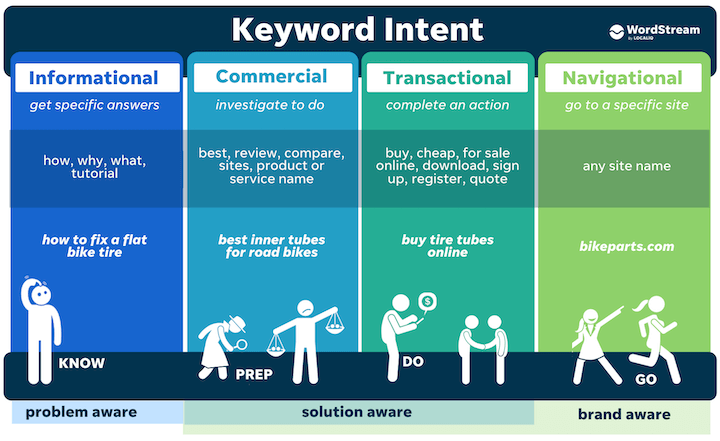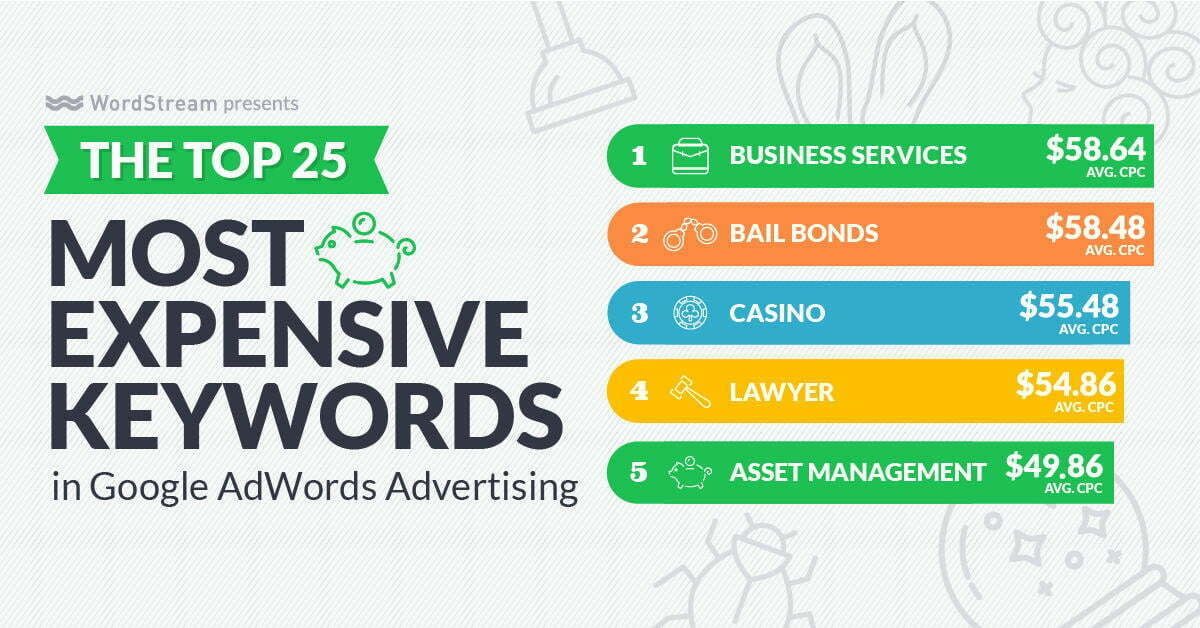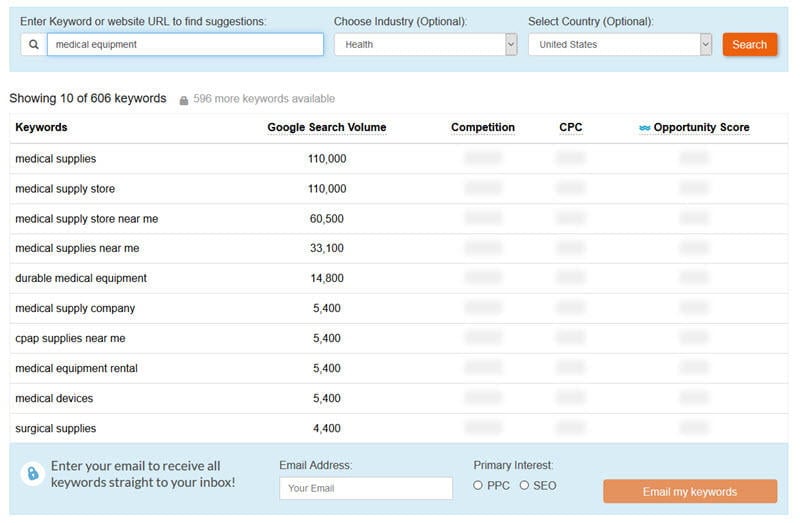Uncover the secrets of PPC keyword research and discover how to identify high-performing keywords that drive results for your campaigns.

Image courtesy of via DALL-E 3
Table of Contents
Introduction to PPC Keyword Research
PPC keyword research is an essential part of digital marketing that helps businesses attract the right audience and drive traffic to their websites. Let’s dive into the world of PPC and discover why keyword research is crucial for finding high-performing keywords.
What is PPC?
PPC, short for Pay-Per-Click, is a digital advertising model where businesses pay a fee each time their ad is clicked. It’s like a shortcut to get your website on the first page of search engine results. Businesses use PPC to reach their target audience and promote their products or services online, making it an effective way to boost online visibility and attract potential customers.
Why Keywords Matter
In the world of PPC advertising, keywords act as the bridge between what people are searching for online and the ads they see. Choosing the right keywords is crucial because they determine when and where your ad will appear. By targeting relevant keywords, businesses can connect with users who are actively searching for products or services like theirs, increasing the chances of converting those clicks into valuable leads or sales.
Getting Started with Keyword Research
When you start your PPC keyword research, it’s important to use the right tools to find the best keywords for your campaign. One helpful tool is the Google Keyword Planner, which can show you popular keywords related to your business or topic. Here’s how to use it:
1. Sign in to your Google Ads account and go to the Keyword Planner tool.
2. Enter words or phrases related to your business to generate keyword ideas.
3. Review the list of keywords with their search volume and competition level.
4. Select relevant keywords that align with your advertising goals and audience.
5. Save your selected keywords for future reference in your campaign.
Brainstorming Ideas
Another way to kickstart your keyword research is by brainstorming ideas based on your business or topic. Put yourself in the shoes of your potential customers and think about what they might search for online. Here are some tips for brainstorming keywords:
1. Think about the products or services you offer and what words people may use to find them.
2. Consider the problems your business solves and the language your customers might use to describe them.
3. Look at your competitors’ websites and ads to see what keywords they are targeting.
4. Use online tools like Answer The Public or UberSuggest to generate keyword ideas based on search trends.
By using a mix of keyword tools and brainstorming techniques, you can start your keyword research journey on the right track to find high-performing keywords for your PPC campaign. Happy searching!
Finding High-Performing Keywords
When it comes to creating successful PPC campaigns, one of the key factors is finding high-performing keywords. These are the words or phrases that people are most likely to search for and that will lead to clicks on your ads. In this section, we will explore how to identify these valuable keywords and use them to optimize your campaigns.

Image courtesy of www.wordstream.com via Google Images
Keyword Metrics
Before diving into keyword selection, it’s essential to understand keyword metrics. These are the measurements that help determine the potential performance of a keyword in a PPC campaign. Two crucial metrics to look at are search volume and competition.
Search volume indicates how many times a keyword is searched each month on search engines. Choosing keywords with a higher search volume can lead to more visibility and clicks. On the other hand, competition shows how many advertisers are bidding on a particular keyword. Lower competition keywords may be easier to rank for and can be cost-effective.
Long-Tail Keywords
Long-tail keywords are longer, more specific phrases that target a niche audience. While they may have lower search volume than broad keywords, long-tail keywords tend to have higher conversion rates. For example, instead of targeting “shoes,” a long-tail keyword like “women’s red high heels size 7” can attract shoppers who are ready to make a purchase.
By incorporating a mix of high-volume keywords and long-tail keywords in your PPC campaigns, you can reach a broader audience while also capturing more qualified leads. Keep in mind that keyword research is an ongoing process, so regularly monitor and update your keyword strategy to ensure optimal performance.
Analyzing Competitor Keywords
Identifying Competitors
When diving into the world of PPC keyword research, one crucial aspect is analyzing the keywords your competitors are using. Competitors are businesses similar to yours that target the same audience. By identifying key competitors, you can gain valuable insights into the keywords they are bidding on and potentially discover new keyword opportunities.
Tools for Competitor Analysis
There are various tools available to help you analyze competitor keywords effectively. Tools like SEMrush, SpyFu, and Ahrefs allow you to enter your competitors’ domains and see the keywords they are ranking for. These tools provide valuable data on the volume of searches for each keyword, the competition level, and even the estimated cost per click.
By utilizing these tools, you can uncover valuable keyword ideas, identify gaps in your own keyword strategy, and even keep an eye on emerging trends in your industry.
Organizing Your Keywords
When it comes to running successful PPC campaigns, organizing your keywords is a crucial step that should not be overlooked. Properly categorizing and grouping your keywords can help you manage your campaigns more efficiently and effectively. Here are some strategies to help you organize your keywords effectively:

Image courtesy of www.wordstream.com via Google Images
Creating Keyword Lists
Start by creating keyword lists based on themes, products, or services that you offer. This will help you keep track of different keyword groups and easily identify which keywords are performing well. Make sure to categorize your keywords in a way that makes sense for your business.
Using Keyword Groups
Once you have your keyword lists, consider grouping similar keywords together. This will not only make it easier to manage your campaigns but also allow you to create more targeted ad groups. For example, if you sell different types of shoes, you can group keywords related to sneakers in one group and keywords related to boots in another.
Utilizing Negative Keywords
Negative keywords are like filters for your PPC campaigns. They help you specify words or phrases for which you do not want your ads to show up. For example, if you sell only brand new products, you can use “used” as a negative keyword to prevent your ad from appearing to users searching for used items. Negative keywords ensure that your ads are shown to the most relevant audience, saving you money and improving the effectiveness of your campaigns.
Benefits of Negative Keywords
Using negative keywords can bring several advantages to your PPC campaigns. Firstly, they help you filter out irrelevant traffic, which means you won’t be wasting money on clicks that are unlikely to convert into sales. Secondly, negative keywords enhance the relevance of your ads by ensuring they are displayed to users who are genuinely interested in what you offer. This, in turn, can lead to higher click-through rates and better overall campaign performance.
Regularly Updating Your Keywords
Keywords are the heart of any successful PPC campaign. But just finding the right keywords isn’t enough. To stay ahead of the competition and maximize your results, it’s essential to regularly update and refine your keyword list.

Image courtesy of www.wordstream.com via Google Images
Monitoring Keyword Performance
One key aspect of updating your keywords is keeping a close eye on their performance. By regularly monitoring how your chosen keywords are performing, you can identify which ones are driving traffic, conversions, and ultimately, revenue for your business.
Utilize tools like Google Ads to track metrics such as click-through rates, conversion rates, and cost per click. Analyzing this data will give you insights into which keywords are delivering the best results and which ones may need to be adjusted or replaced.
Making Updates
Based on your performance data, it’s crucial to make informed updates to your keyword list. This could involve pausing underperforming keywords, adding new relevant keywords that you discover through ongoing research, or tweaking your existing keywords to improve their effectiveness.
Regularly updating your keywords not only ensures that your ads remain relevant to your target audience but also helps you adapt to changes in search trends, competition, and consumer behavior. By staying proactive and continuously refining your keyword strategy, you can drive better results and increase the success of your PPC campaigns.
Summary of PPC Keyword Research
In this section, we will recap the essential points covered in the article regarding PPC keyword research and its significance in driving successful advertising campaigns.
Key Takeaways
Keyword research is the foundation of Pay-Per-Click (PPC) advertising, where businesses pay each time a user clicks on their ad. By selecting the right keywords, businesses can connect their ads to relevant search queries and reach their target audience effectively.
When starting keyword research, using tools like Google Keyword Planner can help identify high-performing keywords with optimal search volume and competition levels. Additionally, brainstorming ideas related to the business or topic can uncover valuable keywords that resonate with potential customers.
It is crucial to analyze competitor keywords to gain insights into what works in the market and identify opportunities for improvement in your own campaigns. Tools for competitor analysis can facilitate this process and offer valuable data for refining keyword strategies.
Organizing keywords into manageable lists and groups is essential for efficient campaign management. By categorizing keywords based on themes or relevance, businesses can streamline their ad targeting and optimize performance.
Utilizing negative keywords is another critical aspect of PPC keyword research. Negative keywords help exclude irrelevant search queries and focus ad spend on the most relevant audiences, ultimately improving ad relevance and saving money.
Regularly updating and monitoring keyword performance is key to sustaining a successful PPC campaign. By keeping track of keyword metrics and making timely adjustments, businesses can adapt to changing market dynamics and maximize their advertising ROI.
In essence, mastering PPC keyword research involves a combination of strategic thinking, data analysis, and continuous optimization. By following the key steps outlined in this article, businesses can enhance the effectiveness of their PPC campaigns and achieve their marketing goals.
Want to turn these SEO insights into real results? Seorocket is an all-in-one AI SEO solution that uses the power of AI to analyze your competition and craft high-ranking content.
Seorocket offers a suite of powerful tools, including a Keyword Researcher to find the most profitable keywords, an AI Writer to generate unique and Google-friendly content, and an Automatic Publisher to schedule and publish your content directly to your website. Plus, you’ll get real-time performance tracking so you can see exactly what’s working and make adjustments as needed.
Stop just reading about SEO – take action with Seorocket and skyrocket your search rankings today. Sign up for a free trial and see the difference Seorocket can make for your website!
Frequently Asked Questions (FAQs)
What Are the Best Tools for Keyword Research?
When it comes to finding high-performing keywords for your PPC campaign, there are several tools that can help you kickstart your research. For beginners, Google Keyword Planner is a great tool to start with. This free tool allows you to explore keywords related to your business or industry, analyze search volume, and competition levels. Another popular choice is SEMrush, which provides in-depth keyword analysis, competitor research, and valuable insights to enhance your keyword strategy. Lastly, if you’re looking for more advanced tools, Ahrefs and Moz Keyword Explorer offer comprehensive keyword data and research capabilities.
How Often Should I Update My Keywords?
Updating your keywords regularly is crucial for maintaining a successful PPC campaign. The frequency of updating your keywords should be based on the performance of your campaign. It’s recommended to monitor your keyword performance on a regular basis, ideally weekly or bi-weekly. If you notice certain keywords are underperforming or losing relevance, it may be time to make updates. By staying proactive and agile with your keyword management, you can optimize your campaign for better results and ROI.







